This year the UK Knowledge Mobilisation Forum was held at Seven Stories: The National Centre for Children’s Books in Newcastle. It was an instant hit with the organising committee and conference delegates with colourful painted walls, fairy lights, storytelling chairs, dressing up and bright colours. The atmosphere was relaxed in an inspirational venue down by the River Tyne with an occasional toddler passing by, just to keep things real. The participants were from as far afield as Australia, Canada and the US and they all had a different view of KM. The KM Forum was fascinating and it really helped to widen all our understanding of knowledge mobilisation.
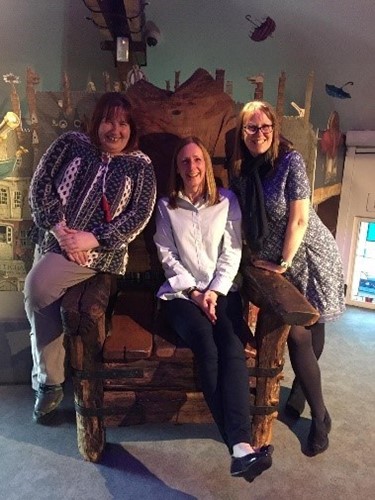
Ishbel Smith (Heart in Mouth) was our first keynote speaker. She ran with the theme and used the medium of children’s stories to explore her own story in knowledge mobilisation; taking us from ‘Hansel & Gretel’ (not being fully informed and walking into danger), to ‘The Elves & The Shoemaker’, (working behind the scenes in the legal service to evidence cases). She reflected on the importance of personal, genuine stories through ‘The Diaries of Anne Frank’ to the difficult journey of Plop ‘The Owl Who Was Afraid of the Dark’ and called on knowledge workers to become Plop’s parents and, step by step, teach people that knowledge mobilisation isn’t as scary as it seems. Engaging us in a similar reflective activity showed the power of the metaphor and personal stories in engaging people, creating connections and building confidence in the importance of personal stories. Susan has been inspired by this presentation to run a similar exercise with her team to explore their stories and have a broader look at the role of storytelling within the organisation.
The second key note session was delivered by John Gabbay & Andrée le May as a review of their life’s research challenging the ‘idealised’ model of evidence-based practice and the variation in how published guidelines and health technology assessments are implemented as each player transforms knowledge as they use it. In fact, the end implementation often has little resemblance to the recommendation first enacted. Their work looks at how messy our knowledge is, and what influences us to translate the research. Linear models do not fit this area of research and so they developed the Mindlines theory to make sense of how evidence enters practice. To understand how to implement, we must understand context, the evidence, the target practitioners and the change method. This idea of ‘messiness’ was also picked up in one of the knowledge fair discussions run by Forest Research which was looking at a more fluid method of knowledge and impact on the different stakeholder groups
The poster presentations created the most popular Tweet of the conference about the embedded research network and knowledge co-production. A webinar is available about the initial findings of the research, but the model of the design features give a practical easy framework to adopt. Equally engaging was the recent American study by Research4Schools who are in the process of developing a model to embed research into education and share their experience on knowledge brokerage. Forum participants were asked to comment and contribute on the model they have developed. It makes you reflect that we don’t always give ourselves the time to properly delve into the theory and research. One of the more novel posters was on using peer challenge to improve commissioning of early-years’ services in North-East England which was written as a book review and printed on fabric to make it easier to transport and re-use. Another technique I picked up was using Post-it notes to leave comments on the posters and ask questions giving those presenting them the chance to get back to us.
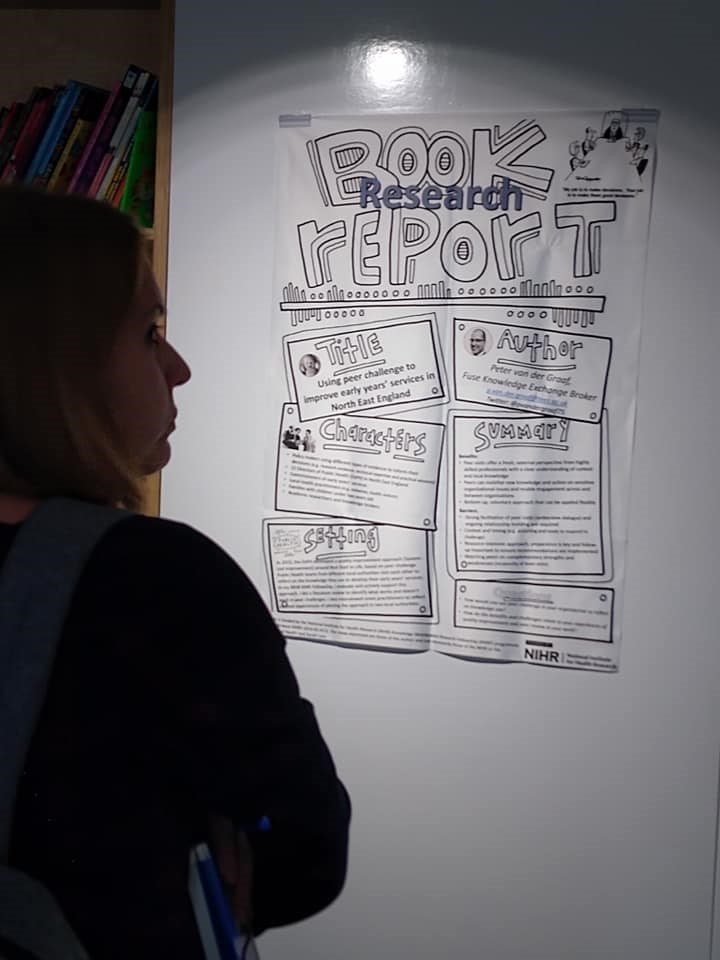
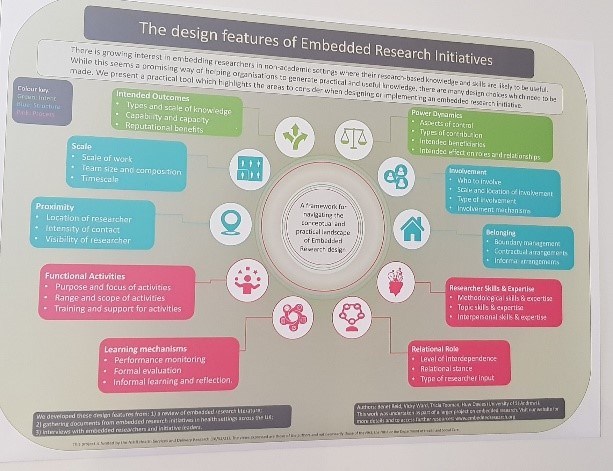
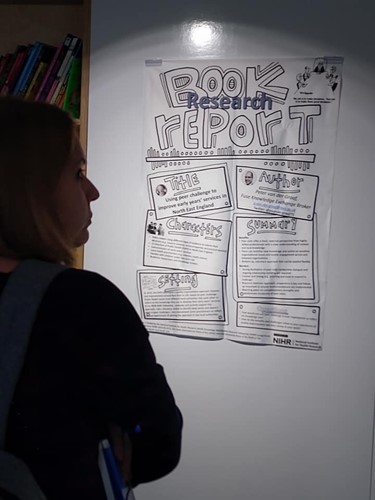
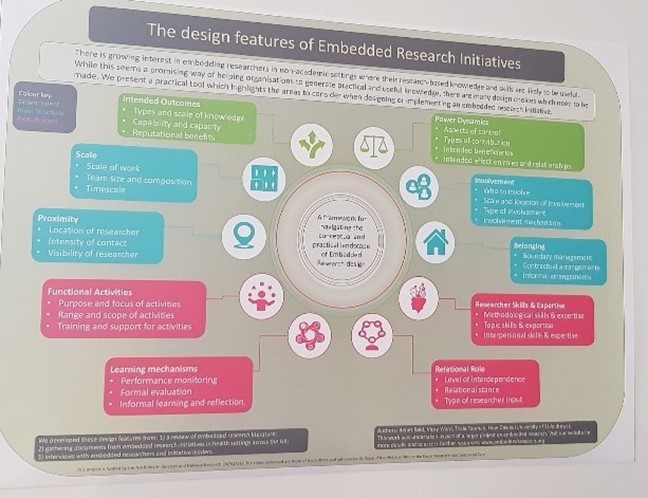
The highlights of the workshop sessions included obe run by a knowledge translation specialist from Canada who explained that knowledge translation (KT) is widespread in Canadian hospitals. Knowledge translation has a very specific meaning in Canada and we were interested to watch some simulations of KT in action. Another workshop looked at knowledge mobilisation between clinicians and patients. Again using simulation, this workshop explored how clinicians provide information to patients including balancing risks, lifestyle factors and how power dynamics affect these exchanges. Could libraries do more collaboration with their simulation teams?
IMA Consultancy ran a session to promote face-to-face communication and ran a knowledge café to explore how to identify and connect with knowledge champions in the organisation. This was a useful discussion as it’s something I have already started. I’ve also delivered some similar sessions and had the opportunity to share ideas and tips with the presenters. I now have a few tweaks to make to some of the training sessions I run.
A fish-bowl element was added to the conference this year, following the success of Victoria Treadway & Tracey Pratchett’s fish-bowl session the year before. Joanne was very proud of herself for not only participating in her first “Fishbowl” experience but actually going into the inner circle and speaking!! It was a lot easier than she thought and is just like having a normal conversation - you quickly forget about the outer circle. The Fishbowl was about diplomacy in KM and the conversation was far-reaching. We talked about the need to find consensus when acting as an intermediary and how researching the people you will be working with is important. Finding out who your natural allies are before you begin any negotiation is important. This is common sense really, but we can forget to prepare for conversations when we are busy.
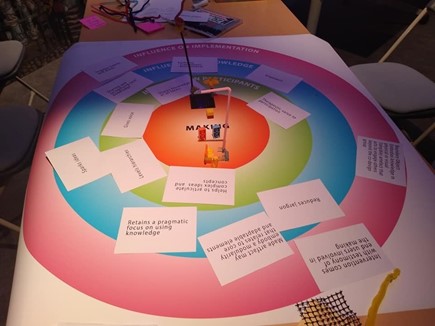
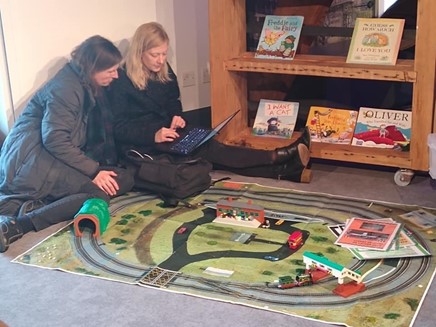
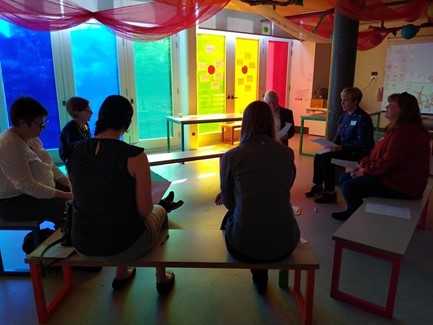
We would definitely recommend the Forum to those with an interest in knowledge mobilisation in all its forms. It was good to meet people from a range of different backgrounds and areas of work. It was also heartening to see how many of the presentations and workshops were led by colleagues from the health sector. This shows how much progress is being made in getting KM embedded into the role of the healthcare librarian.
Feedback Haiku from patient experience rep at the conference…
A good conference.
Challenging my perspectives.
Home with new ideas.
For highlights of the Forum, check the Moment on Twitter.
Joanne Naughton, LKS Development Manager – North East, Health Education England working across the North;
Susan Smith, Senior Librarian, Mid Cheshire Hospital NHS Foundation Trust.
Suzanne Wilson, Head of Library and Knowledge Services, Northumberland, Tyne and Wear NHS Foundation Trust

